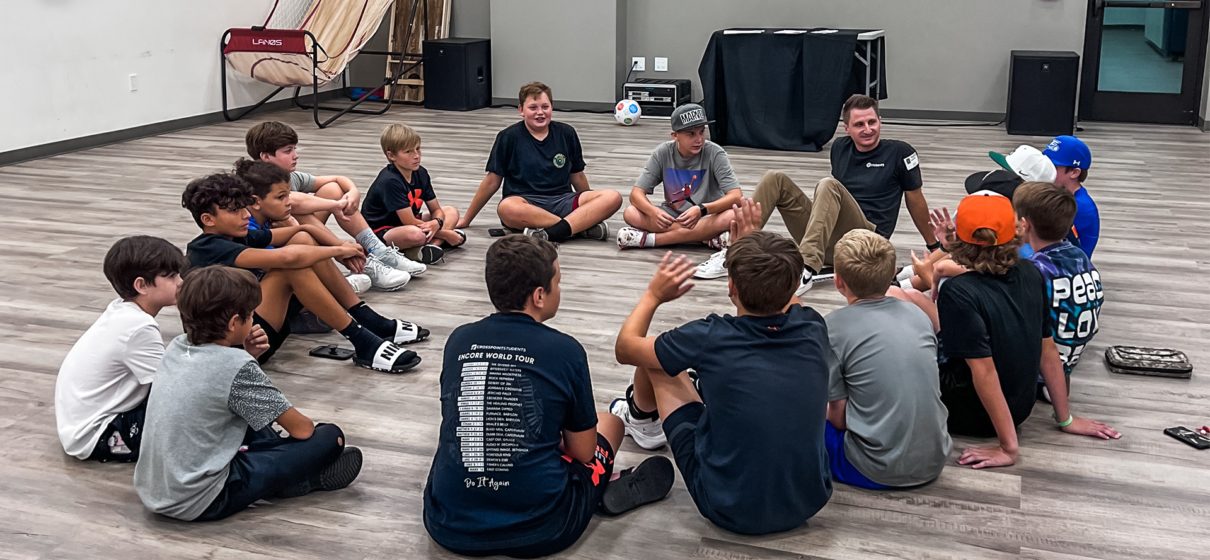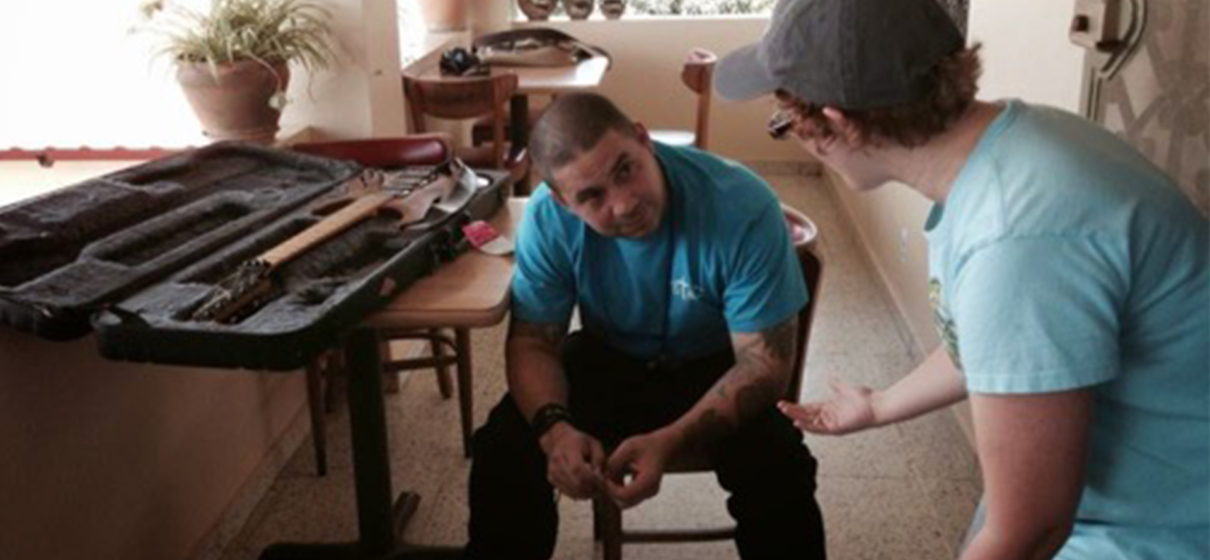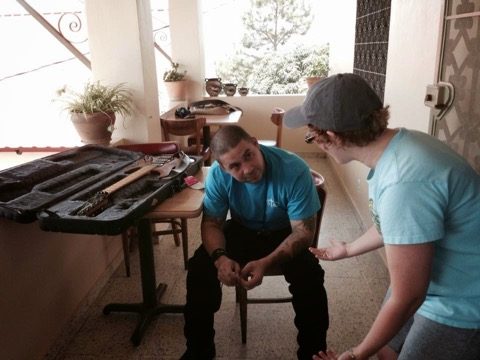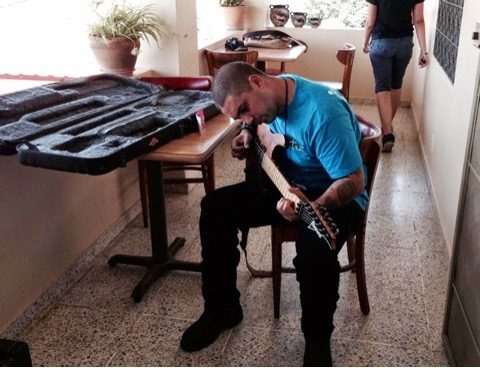Have you ever wanted God to answer for the bad things that have happened to you or others?
Have you asked things like, “Why did you choose this road for me? What is your plan? Do you even care? How can heartbreak like this come to someone who follows you?”
I know I sure have, and I know the confusion it caused. Praising God while carrying pain and doubt felt like trying to map constellations in a thunderstorm.
But thanks to his accommodating grace, God gives us an in-depth look at these types of situations in the book of Job.
In what scholars believe to be one of the oldest stories in the Bible, we see that Job asked many of the questions you and I have wondered — and, honestly, who could blame him?
Through an unusual arrangement, God allowed Satan to take everything from Job, except his life. In a matter of minutes, this wealthy man learned he had just lost his property, his abundant livestock, servants, and even his children. He was understandably in very grave duress, and the book maps out his journey of processing this trauma.
It’s not all grim and hopeless, though.
When I read the story recently, three things stuck out to me that I believe point to the relational heart of God:
1. God allows us to ask questions
While Job refused to curse God, he did dispute God’s kindness. “Does it seem good to you to oppress, to despise the work of your hands?” (Job 10:3).
Clearly, Job couldn’t understand how the God to whom he’d remained devoted would let him lose everything. While Job’s friends urgently warned him to put a tight lid on what they believed was a sinful doubt struggle, Job continued to take his complaints to God, even when he thought his impertinence would provoke God’s wrath. “Though he slay me, I will hope in him; yet I will argue my ways to his face,” (Job 13:15).
He then begs God, “Keep listening to my words, and let my declaration be in your ears,” (Job 13:17). God wasn’t threatened by human emotion on display. Job was not punished for the rawness with which he approached God.
How many times have I stood with my fellow worshipers, lifted my voice in praise, and suddenly choked on doubt when trying to sing of God’s goodness?
God’s response to Job gives me hope that I can approach him vulnerably, and let my heart be open, knowing I will not be judged for laying my confusion at his feet.
It reminds me of a stanza in the old hymn, “Dear Refuge of My Weary Soul”:
Hast Thou not bid me seek Thy face,
And shall I seek in vain?
And can the ear of sovereign grace,
Be deaf when I complain?
No still the ear of sovereign grace
Attends the mourner’s prayer
Oh may I ever find access,
To breathe my sorrows there.
2. God is patient with grief
The whole book of Job is 42 chapters long — the majority of these alternating between Job’s expressions of pain and his “friends” trying (and failing) to adequately answer for the calamities that have befallen him.
Over and over, they told him that he must have sinned, otherwise God wouldn’t have sent this judgment. They berated his natural grief and rebuked the way he implored God.
But, instead of getting involved in the dialogue, God seemed to remain silent for a while. It’s not until chapter 38 that we see God speak, and it wasn’t to dish out judgment on Job for anguishing.
In fact, God never once scolded Job for his feelings of sadness.
A few years ago, my husband and I went through a heartbreaking season of infertility and miscarriage. We sensed that many people dismissed our sadness after the season dragged on. One person even told us that maybe we should stop praying for a child, if God clearly didn’t want to give us one! What a hard walk it was to continually ask that of the Lord, despite of years of disappointing reality.
But through that journey, God was always available. His voice was one of comfort and love, not shame or mere tolerance to our insistent praying.
3. God wants us to trust him
Instead of providing rationale for the purpose for Job’s suffering, God turns the charges on end. In a series of mic-drop inquiries, God makes it clear that Job isn’t qualified to demand answers. “Shall a faultfinder contend with the Almighty? He who argues with God, let him answer it,” (Job 40:2).
Using pretty robust hyperbole, God let Job feel a bit of his overwhelming greatness. “Where were you when I laid the foundation of the earth? Tell me, if you have understanding… you know for you were born then, and the number of your days is great!” (Job 38:4, 21). By highlighting his might against human scantness, he was inviting Job to trust and submit to his sovereignty.
The message is this: if you cannot control time, space, or all the details of life on earth, then you may find security in the LORD — Yahweh — who does.
The extensiveness with which God shows his capability moves Job to repentance and humility, and this is where their relationship lands at the conclusion of the story.
I’ll be completely honest, I’ve wanted to raise my fist at the Lord before. At times, my prayers have not been PG. But, in a mix of anger and submission, I’ve been left time and again with the ultimate bottom line: “Whom have I in heaven but you? I desire you more than anything on earth,” (Psalm 73:25).
God doesn’t always address my situation, but he always shows himself powerful.
After all, there is none greater than the one who sees all and knows all. He is worthy to be trusted with my heart, so I can submit to his sovereignty. Even if my heart is feeble, he is worthy to be praised for his majesty.
Thankfully, Job’s prostration was not permanent. God granted him even more of the wealth, family, and renown than he had known before. What is probably more valuable than all of that fortune, however, was that Job came out of his disaster with a deeper understanding of who God is and how much he can be trusted — even when his ways don’t make human sense.
We can benefit from the telling of Job’s story. When our pain causes us to question God’s intentions, let us hold fast to his heart. He is a safe place for earnest doubts and struggles, he is patient with our expressions and emotions, and he is always inviting us to trust him.












